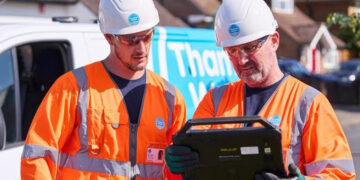NEW FIGURES show that the proposed “boiler ban” could see rural residents of the south east of England pushed even further into fuel poverty.
A poll commissioned by Liquid Gas UK asked home owners in rural England who aren’t connected to the gas grid how the proposals would affect them.
The results revealed that more than three quarters them of would be unable to afford new heating systems if the plans went ahead.
In total, 78% of off-grid home-owners would be stuck without heating solutions or funds to replace them once they had stopped working, pushing them into fuel poverty.
Of the same cohort, 70% felt that the government’s plans were “unfair” compared to the 2035 phasing out of fossil fuels that current plans replace.
A comparable amount wanted to see the scheme scrapped, with 69% of participants saying that they would like to see plans abandoned.
The initiative contends that, by 2026, homes currently using oil, petroleum gas, or solid-fuel heating systems would be unable to replace their heating system like-for-like should it break down.
It also estimated that replacing older systems for newer, electric systems would cost between £15,000 and £30,000 for rural home-owners.
Statistics published by the government last month showed that rural homeowners were 40% more likely to have fallen into fuel poverty than urban counterparts.
They also showed that while 12% of people connected to the gas grid are in fuel poverty, this jumps to 20% for those not connected.
George Webb, Liquid Gas UK’s CEO, said: “Government’s current strategy risks pushing more rural households into fuel poverty.
“These survey results clearly indicate that an electrification-first approach to decarbonising rural homes is both unaffordable and unfair.
“Government urgently needs to re-think its 2026 boiler ban for homes not connected to the gas grid and ensure we’re offering rural communities a choice in how they decarbonise, and ultimately, heat their homes.”
He continued: “As an alternative to electric technologies, Government should consider the benefits of renewable liquid gases, which are a low-carbon and drop-in alternative to LPG, in a mixed energy approach.”
“The industry is investing £600m into the domestic production of renewable liquid gases through a range of sustainable feedstocks, with a credible pathway in place to achieve net zero by 2040.
“Renewable liquid gases offer rural homeowners greater choice and reduce the risk of financial burdens in the path to decarbonisation.”
The poll was commissioned by Liquid Gas UK, the trade association for the liquid petroleum gas and renewable liquid gas industry in the UK.














































